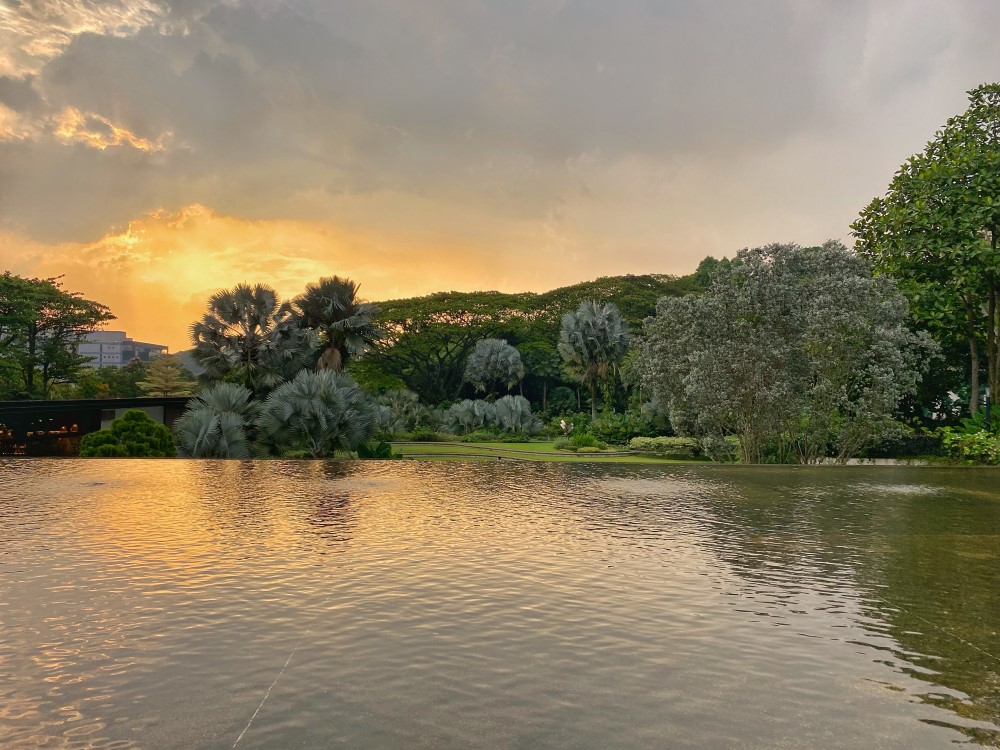Text by Neo Yu Zhe (NTU History Programme)
When we think of some of Singapore’s nature reserves and parks, we often
think of popular locations like the Singapore Botanic Gardens and Bukit Timah
Nature Reserve. With over 400 parks and four nature reserves in Singapore
managed by National Parks Board (NParks), parks like HortPark remain less
known to Singaporeans. For this article, I have had the pleasure of
interviewing HortPark’s Director, Shirley Ling, and Deputy Director, Lim
Jin Hong, who provided interesting insights. While all parks and nature
reserves contribute to Singapore’s green agenda, this article is
interested in HortPark’s role in conserving and promoting
Singapore’s natural heritage and biodiversity.
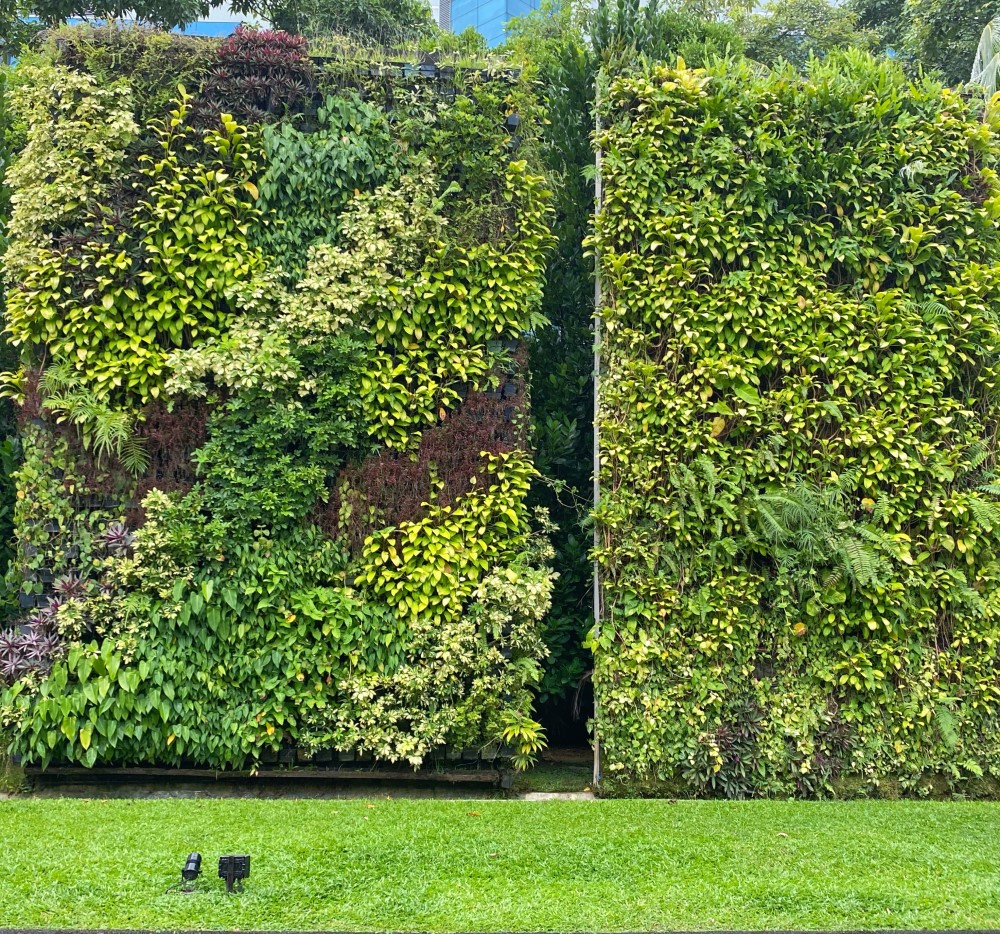 Two of HortPark’s famous Green Wall installations featuring various
green wall systems developed since 2008, 2022.
Two of HortPark’s famous Green Wall installations featuring various
green wall systems developed since 2008, 2022.
Located near the Southern Ridges, HortPark first opened its gates to the
public on 10th May 2008. With the ideation process that started in the early
2000s, HortPark is “a one-stop gardening resource hub” that NParks
envisioned as a space unique from all the other parks and nature reserves in
Singapore had in the 2000s.1 Chiefly, HortPark provides the gardening and
landscaping communities and industries space for research and design and a
blank canvas for showcases. Moreover, as a destination park, HortPark is
replete with amenities for the public too. Whether one has a passion for
gardening or simply there to enjoy the natural environment, HortPark has it
all. According to Ling and Lim, natural heritage in HortPark’s eyes is
synonymous with horticulture.2 One of the key ways HortPark has contributed to
preserving Singapore’s natural heritage is by promoting the importance
of our natural environment and biodiversity.
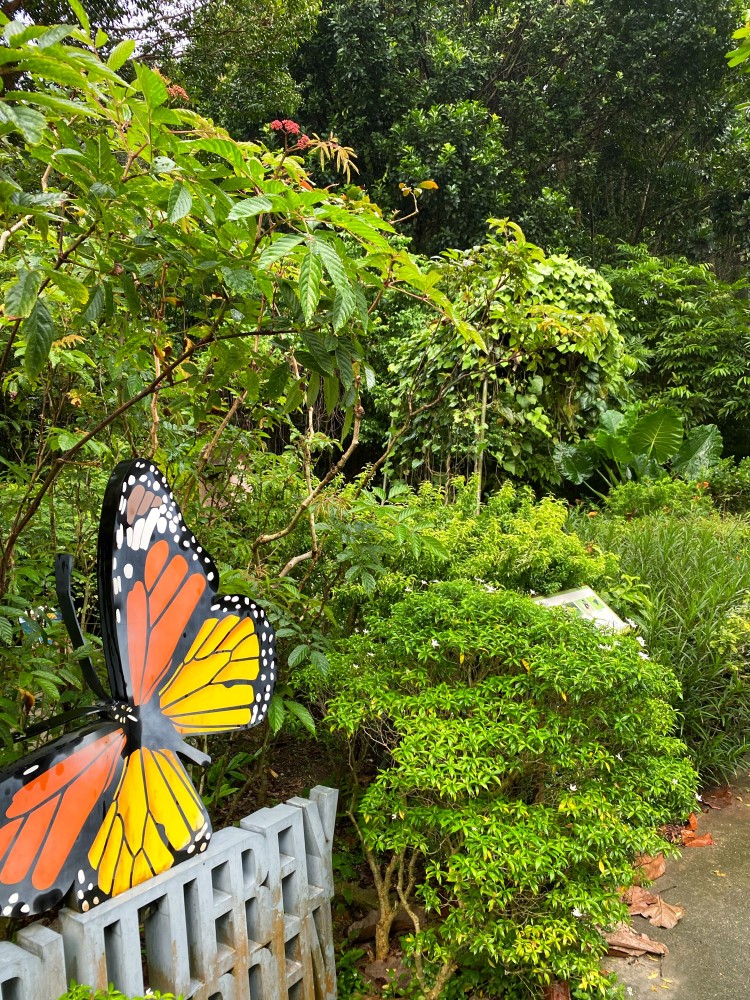 Butterfly Garden @ HortPark. Pro-tip: Head to HortPark early in the morning
to catch the butterflies in action, 2022.
Butterfly Garden @ HortPark. Pro-tip: Head to HortPark early in the morning
to catch the butterflies in action, 2022.
HortPark’s butterfly garden is an excellent example. An installation
that initially started as an enclosure gradually expanded into an open concept
garden. By planting plant species that attract butterflies, the butterfly
garden became a prototypal garden for HortPark’s butterfly outreach
programmes to schools and other gardens around the island. Through outreach
efforts like “Save The Common Bird Wing”, HortPark has contributed
to the conservation of butterflies and, in doing so, also attracted other
species that makeup Singapore’s natural ecosystems. Consequently,
endangered and once thought extinct butterflies have been spotted again in
Singapore. Importantly, Ling and Lim stress HortPark’s overall efforts
culminates in its critical role in advocating for greenery as a whole –
understanding that whatever that is within greenery comes with it – to
its audience.
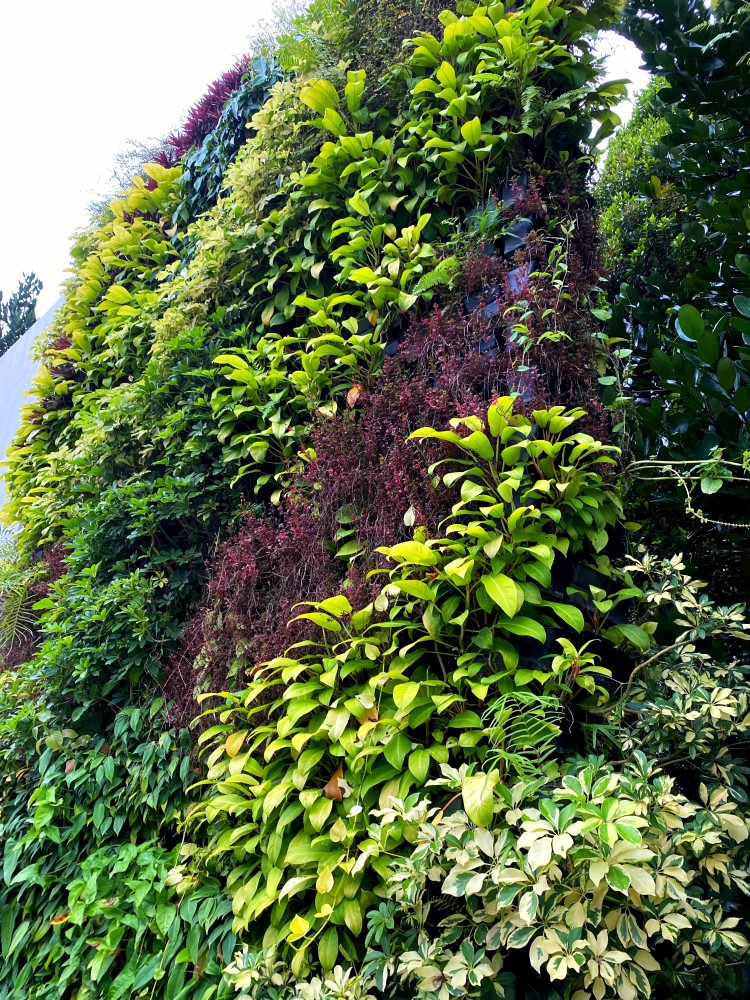 Closeup of one of the Green Walls installations that provide inspirations
for home gardeners and industry partners alike, 2022.
Closeup of one of the Green Walls installations that provide inspirations
for home gardeners and industry partners alike, 2022.
As a hub for gardening and landscaping, HortPark facilitates horticulture
innovation.3 As a facilitator, HortPark provides stakeholders with spaces to
research, design, and innovate. The Green Walls installations were originally
intended for research when HortPark first opened. In the early 2010s, Green
Walls were uncommon and mostly unheard of in Singapore. As such, HortPark
provided a space to showcase the uses, viability, and aesthetics of Green
Walls to industry partners. Various companies used this space to research
suitable plant types and systems for Singapore’s environment. As Green
Walls started to gain traction and became more widely used, HortPark
subsequently rented out these Green Wall spaces to various landscape companies
to showcase their Green Walls to the public. Of course, apart from Green
Walls, HortPark also has other showcase spaces like raised gardening planter
spaces (Vegepod) and aquaponics systems. Thus at HortPark, innovation brings
forth urban promotion of our natural heritage.
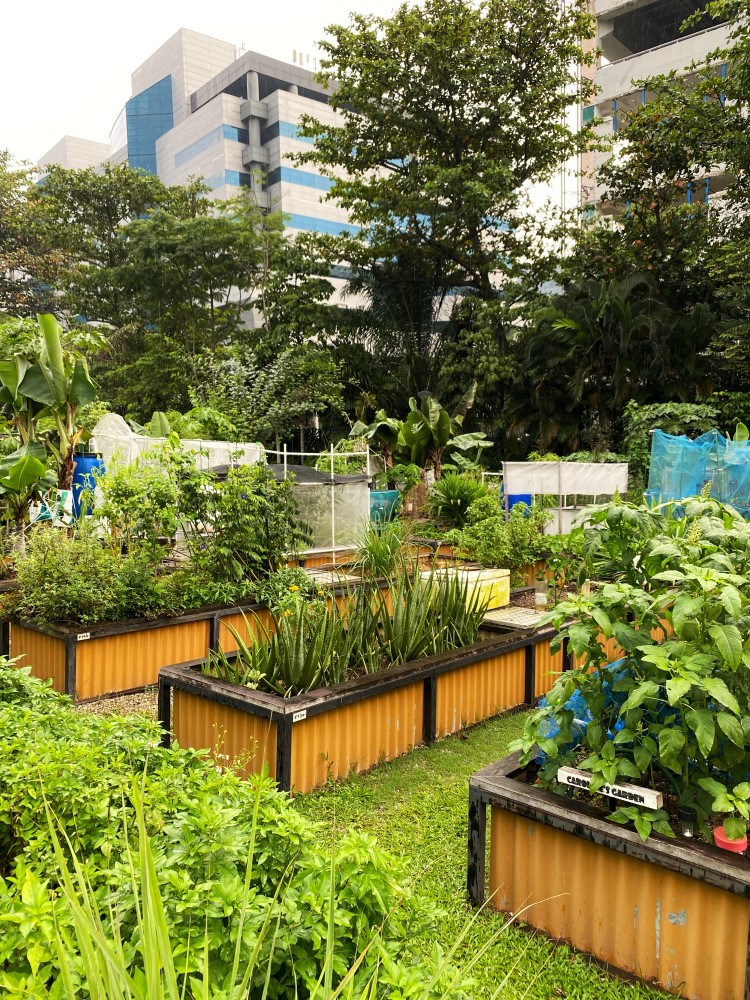 Allotment Garden in HortPark where enthusiasts are allotted a plot of
gardening space to embark on their gardening endeavours, 2022.
Allotment Garden in HortPark where enthusiasts are allotted a plot of
gardening space to embark on their gardening endeavours, 2022.
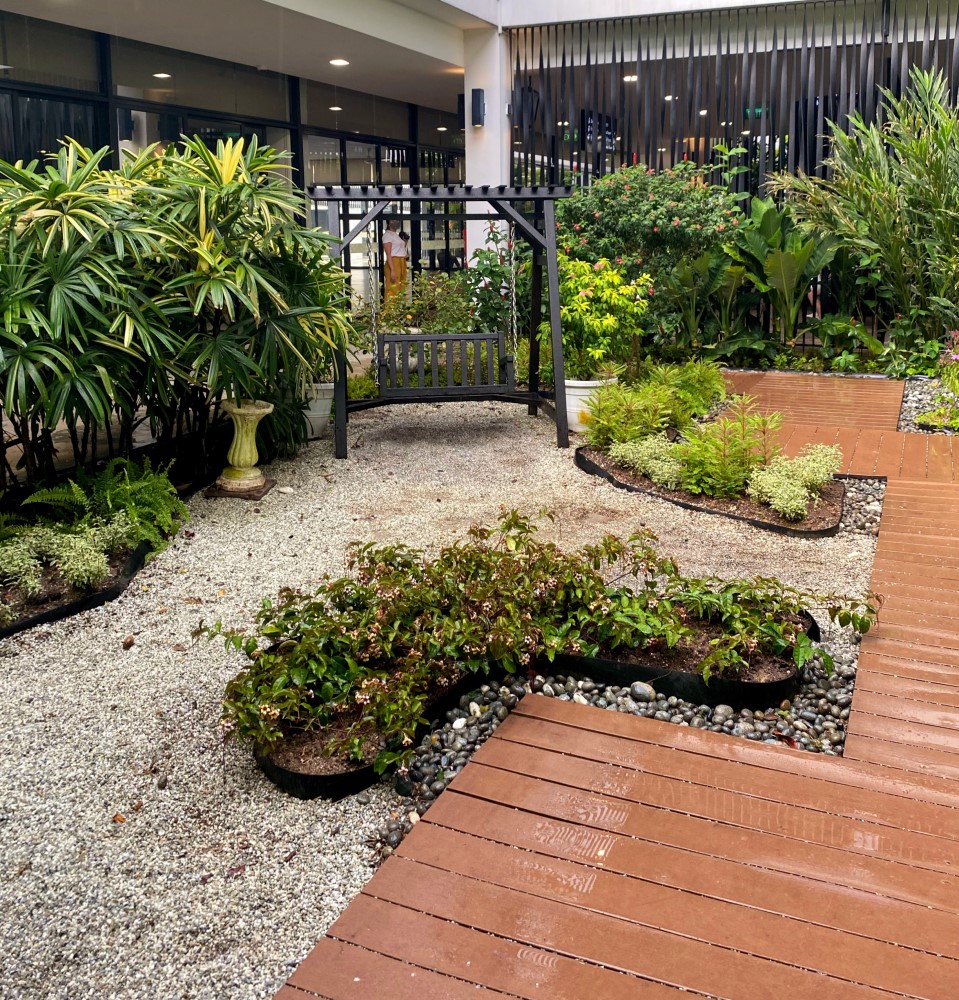 The English Garden – one of HortPark’s many themed gardens to
provide gardeners and landscapers with inspiration, 2022.
The English Garden – one of HortPark’s many themed gardens to
provide gardeners and landscapers with inspiration, 2022.
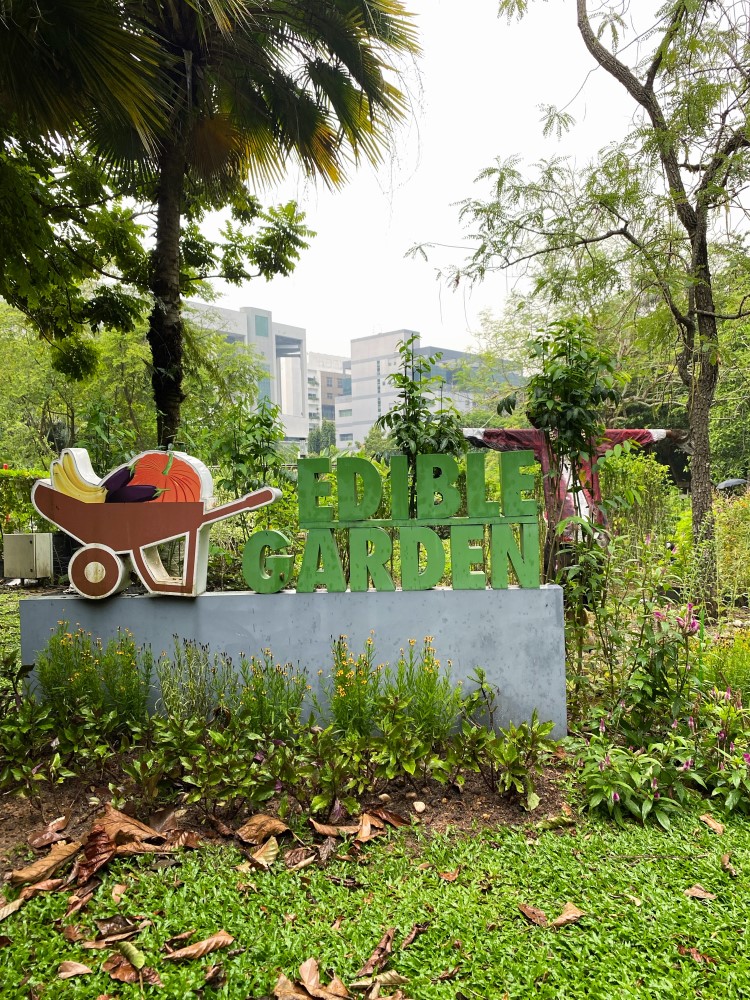 The Edible Garden – another themed gardens that provide visitors with
the many types of edible plants they can plant, 2022.
The Edible Garden – another themed gardens that provide visitors with
the many types of edible plants they can plant, 2022.
Apart from providing spaces for industry partners and companies, HortPark also
features spaces to inspire the general public and gardening and landscape
enthusiasts with creative ideas to develop their gardens at home. With over
twenty small themed gardens like the edible garden and companion planting
garden, each garden provides people with ideas on the endless possibilities of
home-style gardening. HortPark even features a sizeable allotment garden
(featured above) for gardening enthusiasts to showcase their green talents! At
this juncture, I questioned if small actions like planting a few edible plants
in the comfort of our homes would have any significant impacts on the
preservation of greenery in Singapore. For Shirley and Jin Hong, though these
may be small actions, they believe that they are necessary “baby
steps” that would nurture Singaporean’s passion and love for
greenery and green spaces.
 My Backyard Kitchen Garden showcases plants suitable to transform a kitchen
into a backyard kitchen, 2022.
My Backyard Kitchen Garden showcases plants suitable to transform a kitchen
into a backyard kitchen, 2022.
While Shirley and Jin Hong, acknowledge that HortPark may not have a very
obvious or direct impact compared to bigger spaces like nature reserves or the
botanic gardens, HortPark’s focus on gardening and green landscaping are
valiant efforts in fighting for the green agenda. By communicating this
intention in its direct engagement with its primary target audience –
the gardening and landscape communities and industries as well as anyone
interested – HortPark takes on a key role in conserving and promoting
the nation’s natural heritage and biodiversity. If you have a chance,
head down to HortPark to enjoy its themed gardens. Perhaps along the way, you
would receive some gardening inspiration and landscape designs that would
contribute to Singapore’s transformation into City in Nature!
About Partner
Yu Zhe is a Year 2 History Undergraduate at Nanyang Technological University.
In his free time, he enjoys taking long walks with his friends and savour the
sights and sounds nature has to offer. During rainy days, he loves to curl up
on the couch with a cup of warm tea and a good book! In school, he is the
Financial Controller of the NTU History Club – check them out on
Instagram (@ntu.history) and Twitter (@ntuhistorysc)
This article was developed for Singapore Heritage Fest 2022




